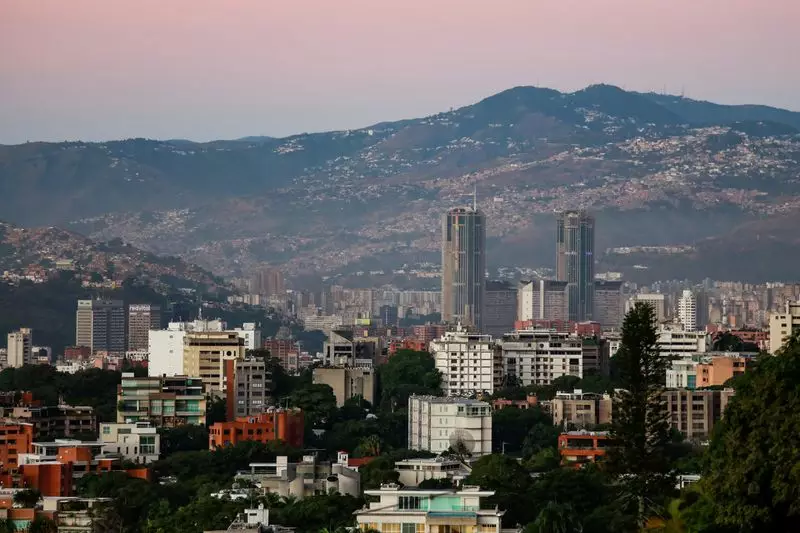In an ongoing saga that intertwines international diplomacy with domestic turmoil, recent actions by the United States against Venezuelan officials underscore the strained relationship between the two nations. On the backdrop of President Nicolás Maduro’s disputed inauguration for a third term, the U.S. has elevated its punitive measures, including sanctions on eight high-ranking officials and a significant increase in the bounty for Maduro’s arrest. This article examines the implications, motivations, and reactions surrounding these developments, focusing on the broader context of Venezuelan politics and international relations.
This newest wave of sanctions, which now includes a $25 million reward for information leading to Maduro’s arrest, reflects a firm stance by the outgoing Biden administration. Officials such as Hector Obregon, the head of Venezuela’s state oil company PDVSA, and Ramon Velasquez, the transportation minister, are implicated among the sanctioned. These actions are not merely punitive; they serve as a clear message from Washington, indicating its rejection of Maduro’s electoral legitimacy. Despite claims from both his Socialist Party and the opposition that he won the July election, the circumstances surrounding the voting process remain highly contentious, with international observers denouncing it as unfair.
The renewed sanctions coincide with similar moves from allied nations like the UK and the European Union, illustrating a coordinated effort to pressure Maduro’s regime, which has faced increasing accusations of human rights violations and political oppression. As stated by Bradley Smith, Acting Under Secretary of the Treasury, this alignment among international allies highlights the global repudiation of Maduro’s governance.
In response to these developments, Maduro has remained defiant, branding the sanctions as illegitimate and framing them as part of an “economic war” aimed at destabilizing Venezuela. His rhetoric portrays a narrative of resilience—his administration has regularly blamed economic hardships on external pressures rather than its own policies. During his inauguration, Maduro expressed contempt for U.S. actions while simultaneously emphasizing the strength and stability of his government in the face of adversity.
This narrative presents a duality: while Maduro continues to evoke nationalistic sentiments among supporters, he simultaneously faces growing dissent within the country. With a significant portion of the population enduring economic hardship, the challenge remains for Maduro to maintain his grip on power. Despite international pressures and the prospect of internal uprisings, he has relied heavily on support from military factions and key international allies, including Russia, China, and Iran.
The controversy surrounding Venezuela’s last presidential election paints a complex picture of political rivalries. Although the Venezuelan electoral authority has declared Maduro the winner, the opposition strongly contests this claim, advocating for Edmundo Gonzalez as the true victor. This polarization finds support not only among Venezuelan citizens but also from governments worldwide, with the U.S. explicitly recognizing Gonzalez and condemning Maduro’s presidency.
Moreover, the government’s treatment of opposition figures—evident in the threats against Gonzalez should he return from exile—illustrates the lengths to which Maduro’s regime will go to stifle dissent. The detainment of prominent opposition leaders further signifies a broader strategy to suppress voices that threaten its authority.
As political tides in the U.S. shift, speculation arises around Donald Trump’s forthcoming policies towards Venezuela in his much-anticipated second term. With a history of endorsing aggressive measures against Maduro, including severe sanctions on Venezuela’s crucial oil industry, many wonder whether Trump will maintain a similar course or adjust his strategy. His new term promises potential complications, particularly concerning immigration—an issue tied closely to Venezuelan migrants fleeing the crisis in their homeland.
In light of mounting concerns regarding the humanitarian crisis in Venezuela, coupled with U.S. domestic priorities, an unpredictable policy direction looms. Trump’s previous endorsement of deporting undocumented immigrants may complicate diplomatic relations with Venezuela should cooperation from Maduro become necessary.
As global and domestic pressures converge, the situation in Venezuela remains fraught with tension. The U.S.’s recent sanctions highlight a refusal to acknowledge Maduro’s legitimacy, yet this stance faces challenges both internationally and within Venezuela itself. While Maduro continues to rely on a mix of military loyalty and international alliances for survival, the future holds a pivotal uncertainty. The interplay of political ideologies, economic hardships, and potential changes in U.S. administration will ultimately shape the trajectory of Venezuela, making it an ongoing focal point for regional and global observers alike.

